Basic Math Skills Subtraction Worksheets for Ages 3-8
10 filtered results
-
From - To
Discover our engaging Basic Math Skills Subtraction Worksheets designed for children ages 3-8! These interactive worksheets introduce essential subtraction concepts through colorful visuals and fun activities. Perfect for both classroom and at-home learning, our resources aim to strengthen early math skills while keeping young learners motivated. From simple problems to more challenging exercises, our subtraction worksheets cater to various skill levels, ensuring every child can find success in their learning journey. As kids practice their subtraction skills, they'll build confidence and a solid foundation for future math success. Explore our collection today and watch your little ones shine!
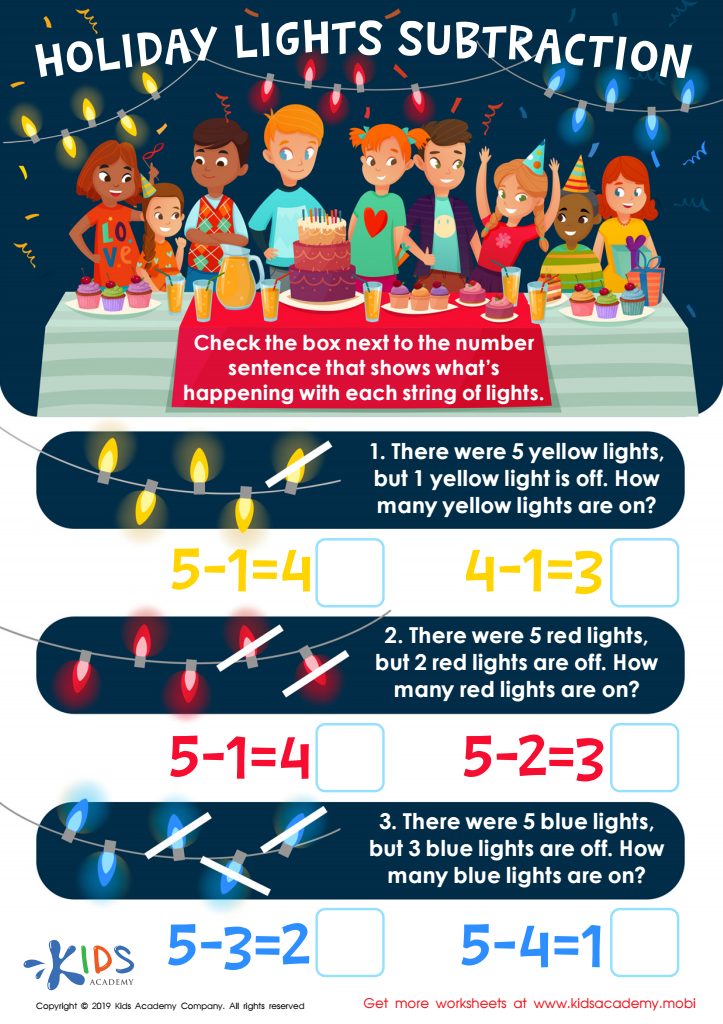

Holiday Lights Subtraction Worksheet
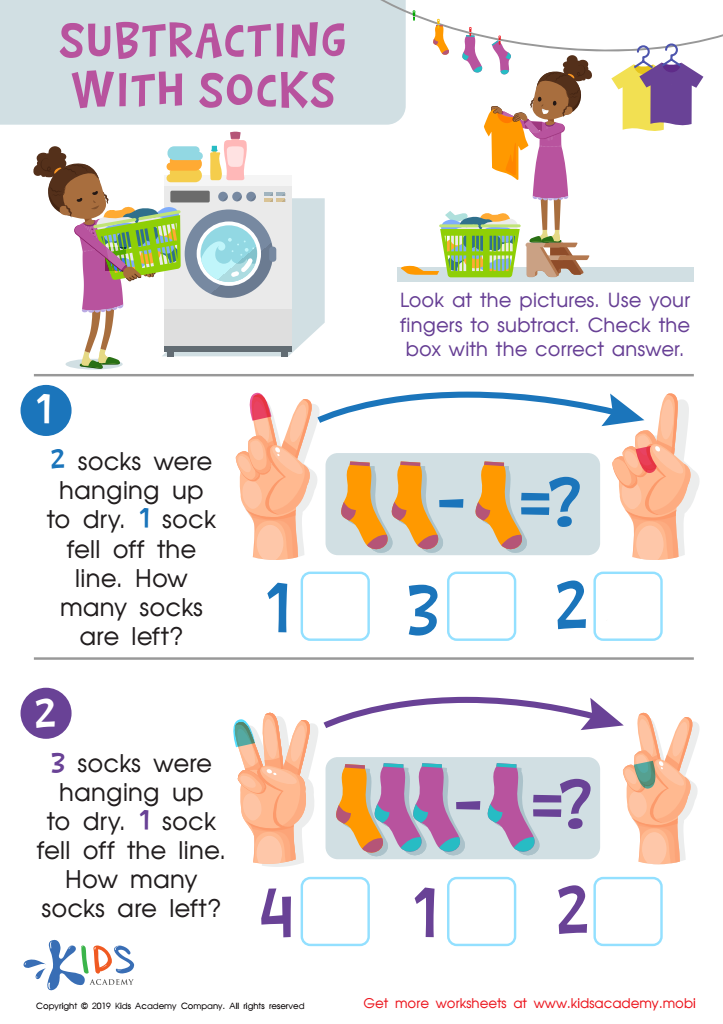

Subtracting Socks Worksheet
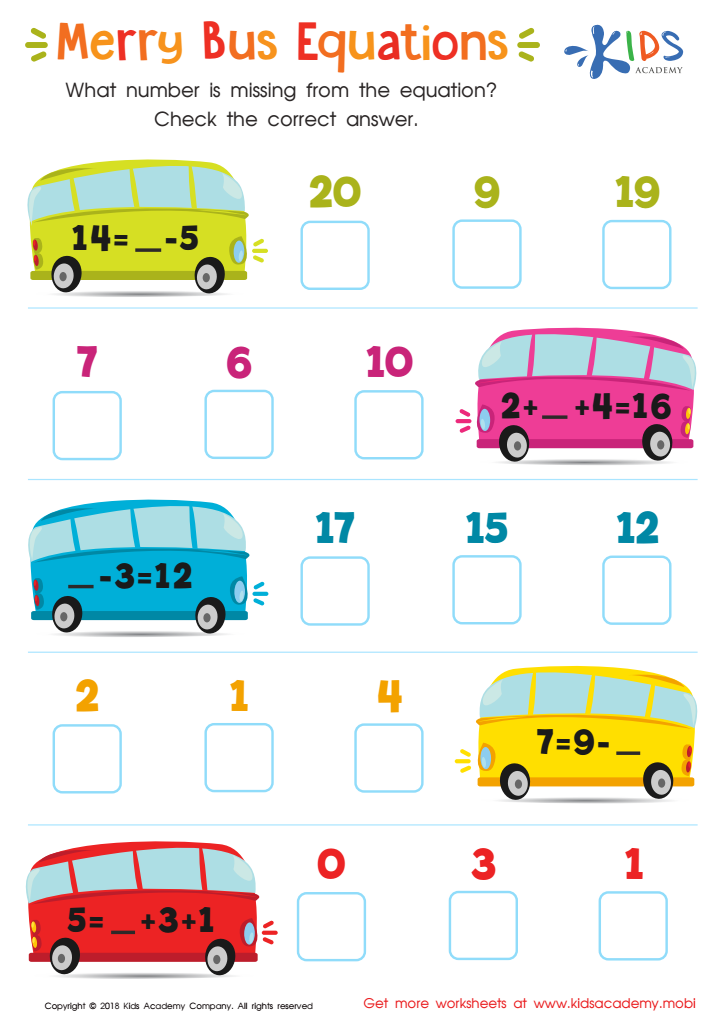

Merry Bus Equations Worksheet
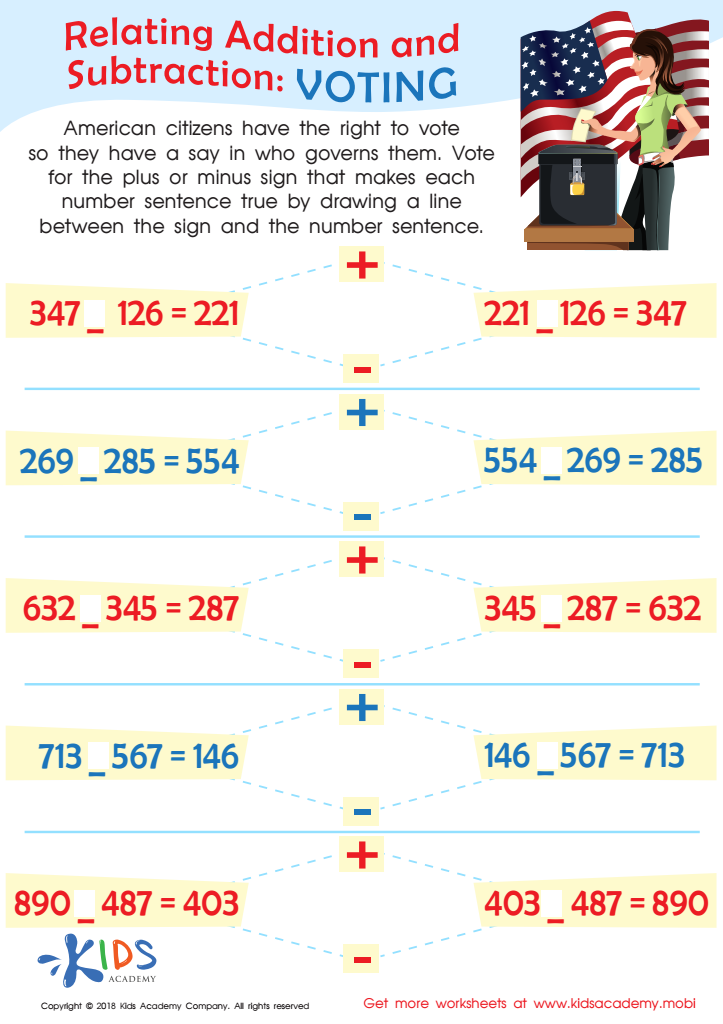

Voting Worksheet
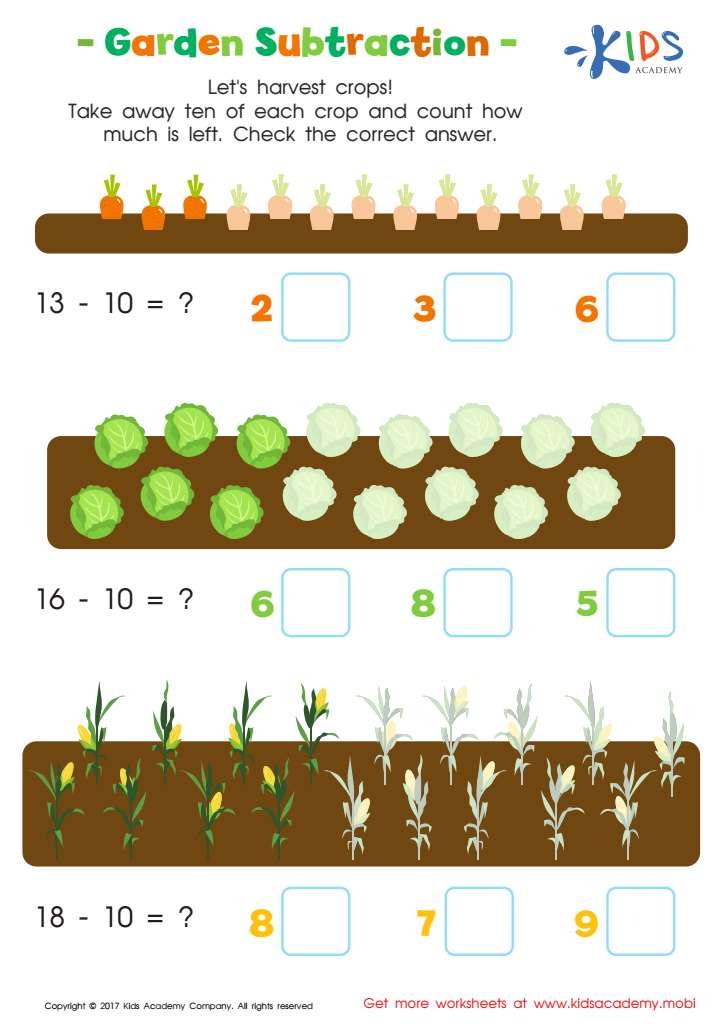

Garden Subtraction Worksheet
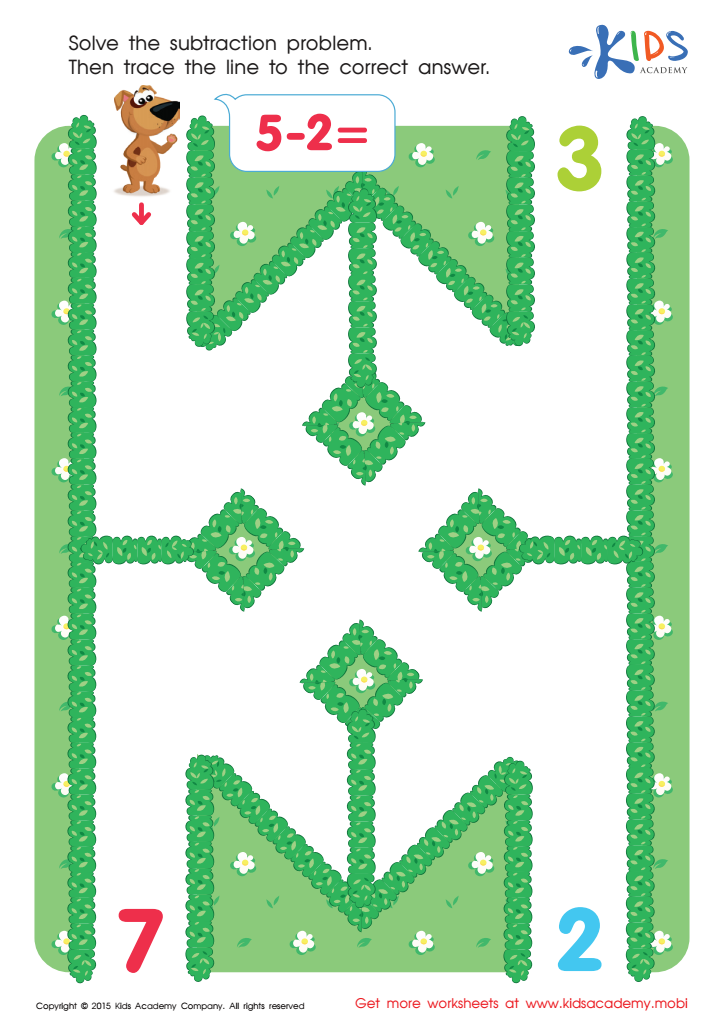

Five Minus Two Worksheet
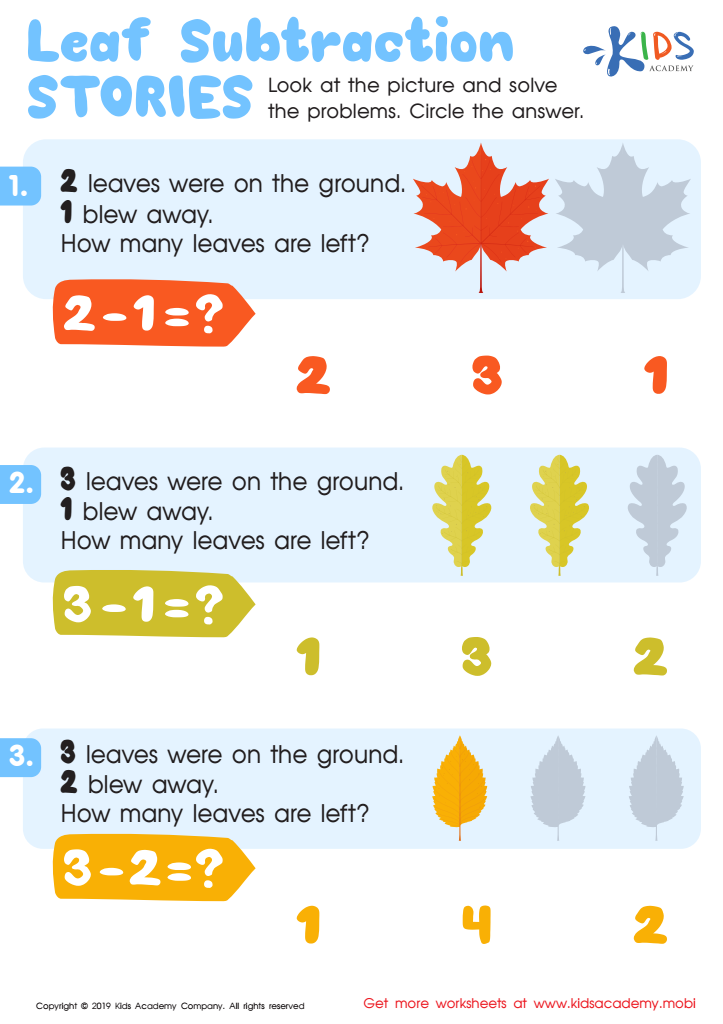

Leaf Subtraction Stories Worksheet
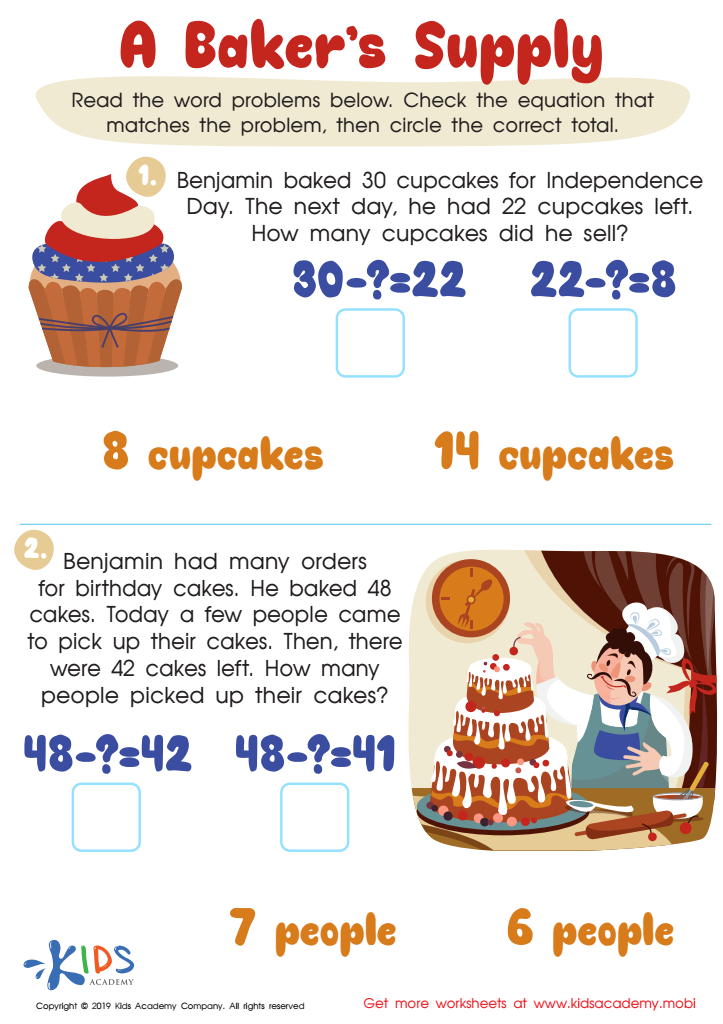

A Baker's Supply Worksheet
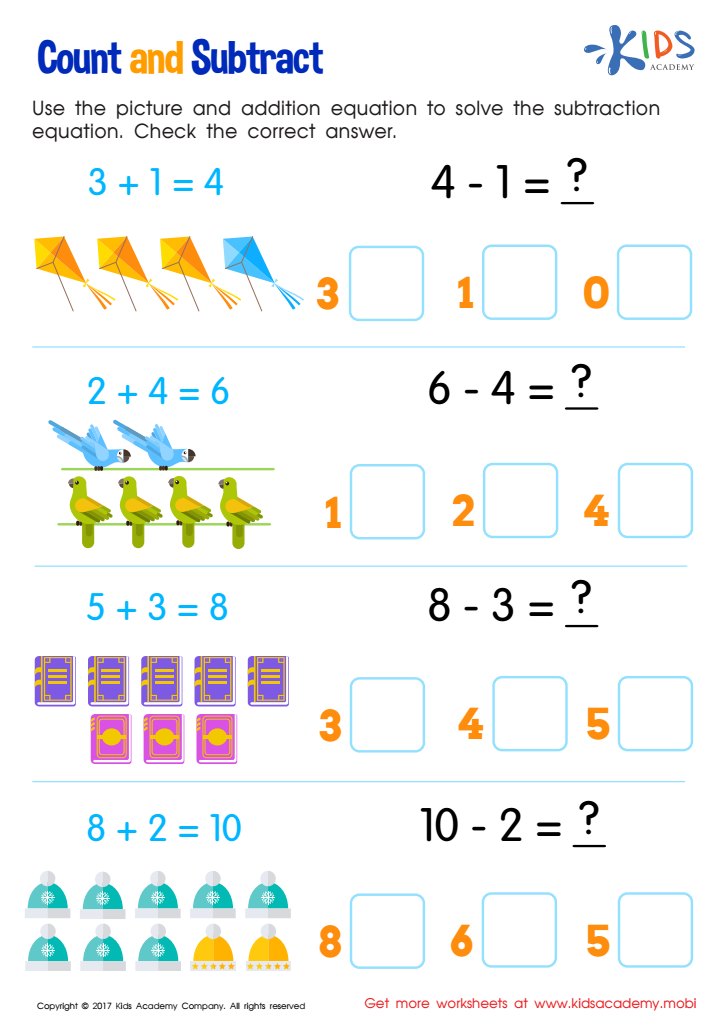

Count and Subtract Worksheet
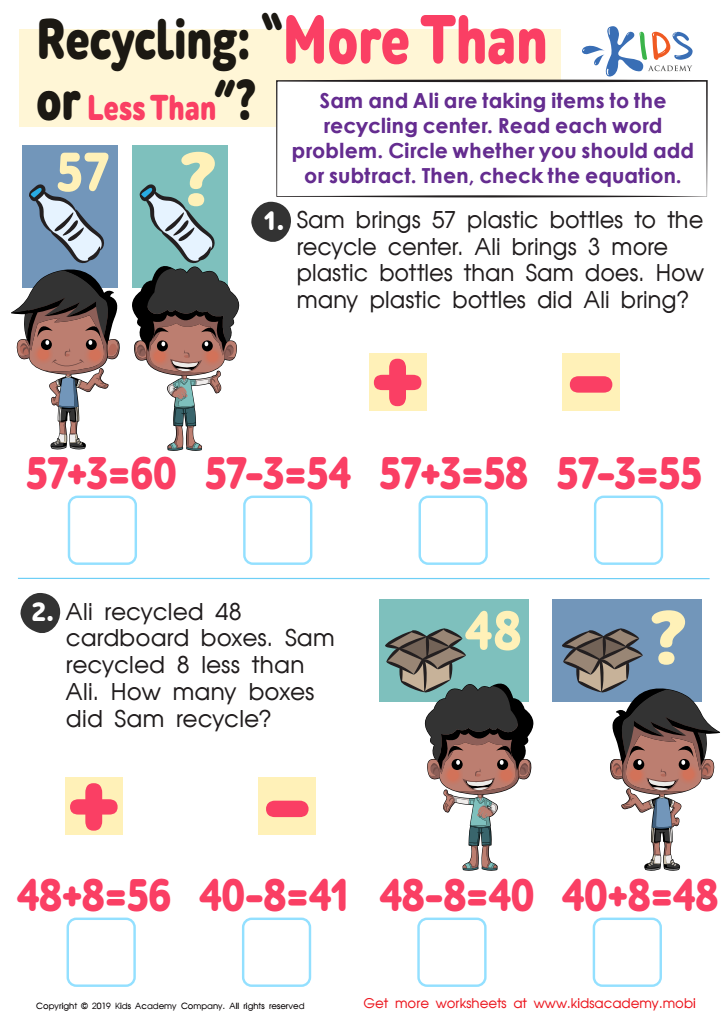

Recycling - More or Less Worksheet
Basic math skills, particularly subtraction, play a crucial role in early childhood development for children aged 3-8. During these formative years, children develop foundational cognitive skills that shape their understanding of the world around them. Mastering subtraction aids in problem-solving and critical thinking, essential competencies that support learning across various subjects.
For parents and teachers, fostering a grasp of subtraction encourages children's curiosity and engagement with numbers. Early exposure helps solidify their number sense, allowing them to grasp more complex mathematical concepts as they progress in school. Beyond academics, understanding subtraction promotes confidence in children, empowering them to tackle challenges independently.
Moreover, subtraction skills enhance everyday experiences. When children learn to subtract in practical situations—like sharing snacks or counting toys—they connect math to real life, making learning enjoyable and relevant. By supporting mastery of subtraction, parents and teachers contribute to a child’s overall development, paving the way for lifelong learning habits.
In short, investing in basic subtraction skills lays a strong foundation for future academic success, encourages positive attitudes towards math, and equips children with essential life skills. Emphasizing this core skill is an investment in a child’s cognitive, emotional, and social growth.
 Assign to My Students
Assign to My Students





















